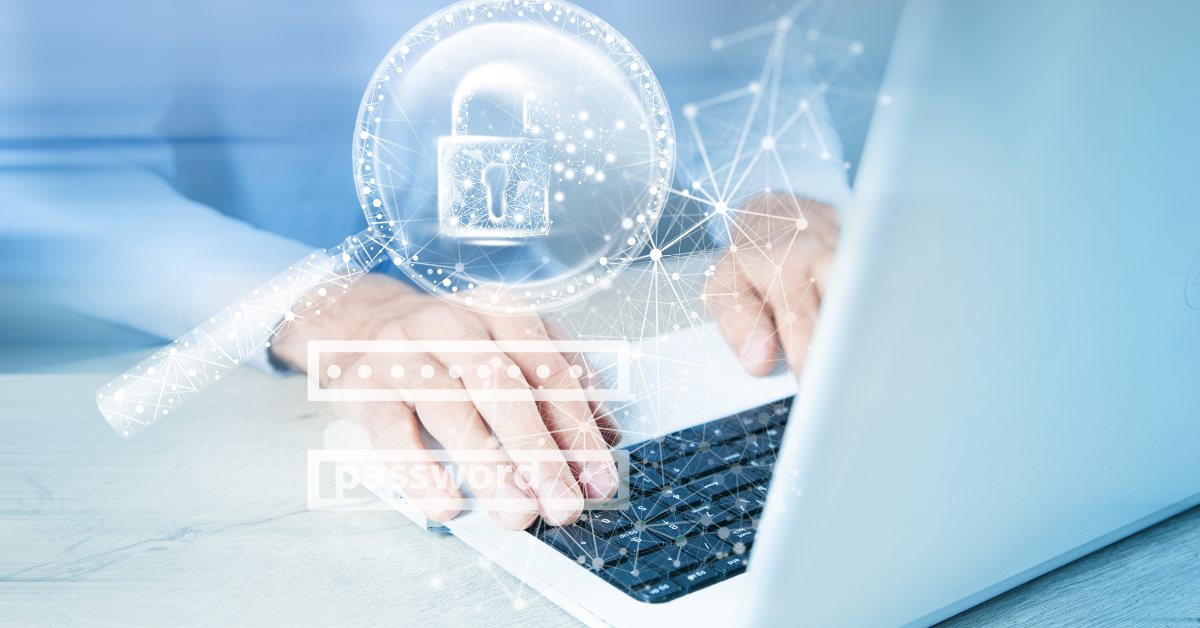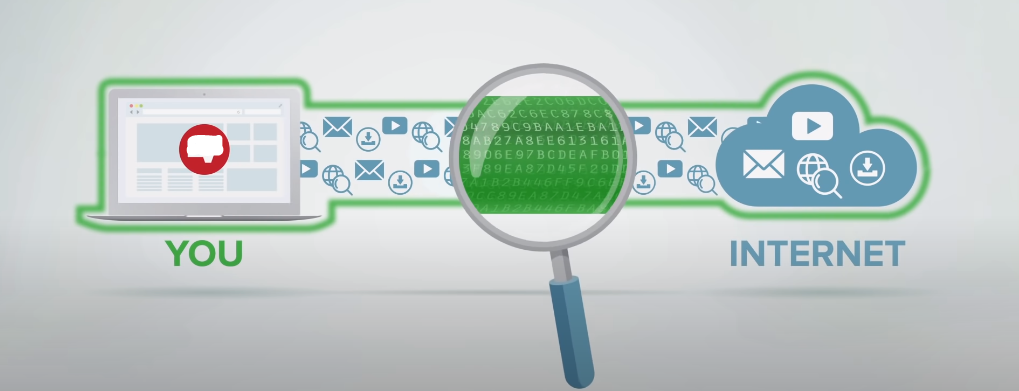Online privacy is essential to safeguarding personal information and maintaining control over one’s digital identity when using the internet. It involves protecting data from unauthorized access, monitoring, and exploitation. In a world where cyber threats and data breaches are commonplace, online privacy matters more than ever. It shields personal information from falling into the wrong hands, preserves one’s reputation, and empowers individuals to make decisions without undue external influence.
What is Online Privacy?
Online privacy refers to protecting personal information and the right to control one’s digital identity when using the internet. It involves safeguarding data from unauthorized access, monitoring, and exploitation. It means keeping your online activities, personal details, and digital communications confidential and secure, ensuring they are not exposed to unauthorized individuals or organizations. Online privacy is fundamental in maintaining control over one’s digital presence and preventing the misuse or abuse of personal information.
Why Online Privacy Matters?

Protecting Personal Information
One of the fundamental reasons why online privacy is crucial is to protect our personal information from falling into the wrong hands. Hackers and cybercriminals constantly lurk in the digital shadows, seeking to exploit vulnerabilities and steal sensitive data. Personal information can be used for identity theft, fraud, or blackmail.
Safeguarding Reputation
The digital age has made it easier for information to spread rapidly. A single data breach or a social media mishap can tarnish your reputation irreparably. Online privacy helps shield you from unwarranted exposure and the potential consequences of publicizing your personal information.
Preserving Autonomy
Online privacy empowers individuals to maintain control over their personal lives. Without it, targeted advertising, profiling, and invasive tracking can manipulate your choices, preferences, and behaviors. Preserving autonomy means you can make decisions without undue external influence.
Avoiding Discrimination
In a world where algorithms and data analytics play a significant role in decision-making, online privacy can help prevent discriminatory practices. Your online behavior and data should not be used against you when seeking employment, loans, or access to services.
Why is it difficult to maintain online privacy?
- Data Collection by Online Services: Many online services, websites, and apps collect extensive data about users, often without their explicit consent. This data may include browsing history, location information, and personal preferences, making it difficult to control the collected information.
- Data Sharing and Selling: Companies often share or sell user data to third parties, including advertisers, which can lead to an erosion of privacy. This data can be used to target users with ads and other content, making it challenging to keep personal information private.
- Complex Privacy Settings: The settings for online privacy on various platforms are often complex and can change frequently. Users may not be aware of how to configure these settings effectively, leaving them vulnerable to privacy breaches.
- Data Breaches: Data breaches are common occurrences where hackers gain unauthorized access to databases containing user information. These breaches can expose sensitive data, such as passwords and personal details, making it difficult for individuals to protect their privacy.
- Government Surveillance: Some governments engage in online surveillance, monitoring citizens’ online activities and communications. This intrusion into individuals’ privacy is often carried out in the name of national security, making it challenging to maintain online anonymity.
- Social Engineering and Phishing: Cybercriminals use various tactics, such as phishing emails and social engineering, to trick individuals into revealing personal information. These deceptive methods can compromise online privacy.
- Device Tracking: Devices like smartphones and smart home devices can track users’ movements and activities outside the digital realm. This tracking can be difficult to control and may infringe on privacy.
Steps to Protect Your Online Privacy:

A strong password is your first line of defense. Ensure your passwords are complex and unique for each online account. Consider using a password manager to help you keep track of them.
Enable Two-Factor Authentication
Two-factor authentication adds an extra layer of security. It typically involves receiving a code on your mobile device that you must enter in addition to your password when logging into an account.
Be Cautious with Personal Information
Avoid sharing unnecessary personal information online. Be selective about what you post on social media, and be wary of sharing sensitive data with unknown websites or individuals.
Use Virtual Private Networks (VPNs)
VPNs encrypt your internet connection, making it harder for third parties to track your online activities. They are particularly useful when using public Wi-Fi networks.
Stay Informed About Privacy Policies
Read their privacy policy before signing up for an online service or app. Know how your data will be used, and opt out of data sharing when possible.
The role of encryption in online privacy:
The role of encryption in online privacy is pivotal and can be likened to the lock and key of the digital world. Encryption is a process of encoding information so that only authorized parties can access and understand it, while unauthorized individuals or entities cannot decipher it.
- Securing Data in Transit: Encryption is commonly used to protect data as it travels between your device and web servers. When you visit a secure website, you often see “HTTPS://” in the URL. The “s” stands for “secure,” indicating that the data exchanged between your browser and the server is encrypted. This ensures that any data you enter, such as login credentials or credit card information, remains confidential and is not intercepted by malicious actors during transmission.
- End-to-end Encryption for Communications: Messaging apps like WhatsApp and Signal employ end-to-end encryption. This means that only the sender and recipient can decipher a message’s contents. Even the service provider cannot access the message’s plaintext.
- Protecting Stored Data: Encryption is also used to protect data stored on devices, whether it’s your smartphone, computer, or cloud storage. If your device is lost or stolen, encrypted data remains inaccessible without the decryption key, ensuring that your personal information, files, and documents remain secure.
- Secure Email Communication: Email services often offer encryption options like PGP (Pretty Good Privacy) or S/MIME (Secure/Multipurpose Internet Mail Extensions). These methods encrypt the content of emails, including attachments, making it exceedingly difficult for unauthorized parties to read the messages.
- Safe Online Transactions: E-commerce transactions rely heavily on encryption to protect your financial information. When you make an online purchase, your credit card details are encrypted before being transmitted to the payment processor, ensuring that cybercriminals cannot intercept and misuse this sensitive data.
Conclusion:
Online privacy is a fundamental right and a necessity. It encompasses the protection of personal information, the preservation of reputation, the empowerment of individual autonomy, and the prevention of discrimination. While challenges such as data collection, complex privacy settings, and government surveillance persist, we can take steps to protect ourselves, from using strong passwords and two-factor authentication to employing virtual private networks (VPNs) and staying informed about privacy policies.
FAQs:
Can online privacy be maintained completely?
Achieving absolute online privacy can be challenging due to the interconnected nature of the internet. While you can enhance your privacy, it’s essential to recognize that complete privacy may be elusive.
What are some signs that my online privacy may be compromised?
Indicators of compromised online privacy may include unauthorized access to your accounts, receiving suspicious emails or messages, and noticing unfamiliar or unexpected online activity. Regularly monitoring your accounts and devices for unusual activity is crucial.
Is sharing personal information online, even with trusted websites, safe?
Sharing personal information with trusted and reputable websites is generally safe, especially when necessary for transactions or account creation. However, always exercise caution and verify the website’s legitimacy, particularly when sharing sensitive data like credit card information.
How can I protect my online privacy?

You can protect your online privacy by using strong passwords, enabling two-factor authentication, being cautious with personal information sharing, using virtual private networks (VPNs), and staying informed about the privacy policies of online services.
What are the threats to online privacy?
Common threats to online privacy include data breaches, website tracking and profiling, social engineering tactics, and government surveillance in certain regions.
How can I stay informed about online privacy practices?
To stay informed about online privacy practices, read the privacy policies of online services and apps before using them. Additionally, follow reputable online security news sources to stay updated on the latest threats and protective measures.
